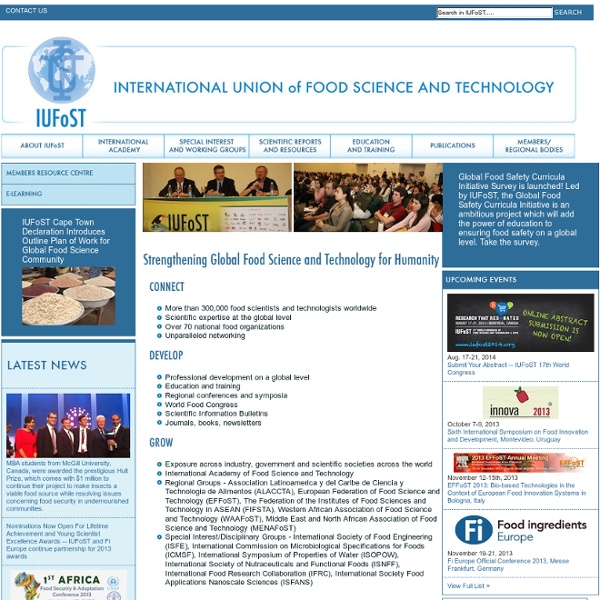



Science for the Public Homepage I teach undergraduate and graduate courses in Community, Food and Agriculture (45% of my appointment). My research focuses on the “food system” (55% of my appointment). The food system involves all of the steps required to produce food and get it to our plates–from farming and processing to distribution and consumption. My work is unified by three main questions, (1) what changes are occurring? (2) what are the impacts of these changes on communities? (3) what can communities do to respond positively to these changes? These questions drive two main projects, (1) characterizing consolidation in food and beverage industries, and (2) bridging information gaps between producers and consumers through ecolabels. Please note: the book/film database is not always viewable in Firefox or Chrome. Recent Information Graphics Organic Processing Industry Structure, February 2014Global Seed Industry Structure, 1996 to 2013Concentration in the U.S. Getter, Kristin L., Bridget K. Student Publications
Student Science Organic Processing Industry Structure Organic Processing Industry Structure The development of the USDA National Organic Standard in place of differing state/regional standards was widely predicted to accelerate trends of increasing consolidation in this sector. The first draft of the standard was released in 1997; what changes in ownership and control have since occurred? Click to zoom (requires latest version of Silverlight in some browsers) PDF version of Organic Industry Structure: Acquisitions & Alliances, Top 100 Food Processors in North AmericaMost acquisitions of organic processors occurred between December, 1997 when the draft USDA standard was released, and its full implementation in October, 2002. Heinz acquired a 19.5% stake in Hain Celestial in 1999 while also transferring ownership of their Earth's Best brand, but sold all of its Hain Celestial stock in 2005. PDF version of Organic Industry Structure: Major Independents and Their Subsidiary Brands Network Animation of Data from 1995 to 2007 View QuickTime Version
Synthetic Biology "Synthetic biology" is an umbrella term that refers to a new set of powerful techniques for manipulating the fundamental molecular structures of life, including genes, genomes, cells and proteins. Techniques being developed under the "synthetic biology" rubric include the modification of existing bacteria to produce useful substances or perform new functions, the creation of novel artificial organisms from "scratch," and — less noted to date — the modification of animal and human genes. Synthetic biologists foresee a host of human applications, including new methods to produce drugs, biofuels and vaccines; to diagnose, prevent and cure disease; and — far more controversially — to screen, select, and modify genes for specified traits in embryos, children, and adults. Nonetheless, the field remains in its early days, and separating hype from real potential remains difficult. Such prospects raise concerns for social justice, human rights, and equality.
SUSTAINABLE FOOD CENTER | Austin, Texas Journals PLOS publishes seven peer-reviewed open-access journals. The journals vary in their selectivity and contain differing amounts of commentary articles from opinion leaders in a variety of scientific disciplines.The journals are editorially independent. They include PLOS ONE, which publishes all rigorous science across the full range of life and health sciences; the community journals (PLOS Genetics, PLOS Computational Biology, PLOS Pathogens, and PLOS Neglected Tropical Diseases); and our flagship journals, PLOS Medicine and PLOS Biology, highly selective journals publishing fewer than 10% of submissions along with a range of informative and influential non-research content. You can search the journals for specific articles here and you can sign up for e-mail Content Alerts for all our journals here. We encourage authors to consider carefully each journal’s scope before submission in order to minimize delays in the review process. PLOS Biology PLOS Medicine PLOS Computational Biology
International Dairy Federation Welcome Publications - Journals by Subject Ocean Science (OS) is an international open access journal dedicated to the publication and discussion of research on all aspects of ocean science, experimental, theoretical and laboratory. OS covers the fields ocean physics, ocean chemistry, biological oceanography, air-sea interactions, ocean models (physical, chemical, biological and biochemical), coastal and shelf edge processes, and paleoceanography. Aims & Scope | Editorial Board | Online Library OS | Online Library OSD